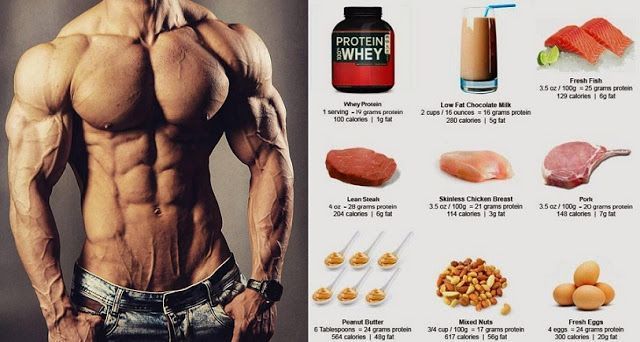Protein is an essential nutrient for building and repairing tissues in the body, and it’s particularly important for building muscle mass. Athletes and bodybuilders are often advised to consume a high-protein diet to increase muscle mass and strength. But how much protein do you need to consume to gain muscle? In this article, we’ll explore the research and provide recommendations for protein intake for muscle growth.
The Role of Protein in Muscle Growth
Muscle growth occurs through a process called muscle protein synthesis. During this process, the body uses amino acids from protein to build new muscle tissue. Amino acids are the building blocks of protein, and there are 20 different types of amino acids that the body needs to function.
Some of these amino acids can be produced by the body, while others must be obtained through diet. The amino acids that must be obtained through diet are called essential amino acids, and they include histidine, isoleucine, leucine, lysine, methionine, phenylalanine, threonine, tryptophan, and valine.
Protein intake is essential for muscle growth, as the body cannot produce these essential amino acids on its own. Research has shown that consuming adequate amounts of protein can help increase muscle mass and strength.
Protein Recommendations for Muscle Growth
There is no one-size-fits-all answer to the question of how much protein you should consume to gain muscle. The optimal amount of protein for muscle growth depends on several factors, including age, gender, body weight, and activity level.
The American College of Sports Medicine recommends that athletes consume between 1.2 and 2.0 grams of protein per kilogram of body weight per day to support muscle growth. This recommendation is based on research that has shown that consuming higher amounts of protein can help increase muscle mass and strength.
For example, if you weigh 70 kg (154 pounds), you would need to consume between 84 and 140 grams of protein per day to support muscle growth.
However, this recommendation is not suitable for everyone. For older adults, the protein requirements may be higher to prevent muscle loss, as the body’s ability to synthesize protein decreases with age. A study published in the American Journal of Clinical Nutrition found that older adults may need to consume up to 1.5 grams of protein per kilogram of body weight per day to prevent muscle loss.
Furthermore, athletes who engage in high-intensity exercise may also require higher protein intake to support muscle recovery and growth. A study published in the Journal of the International Society of Sports Nutrition found that athletes who consumed 2.2 grams of protein per kilogram of body weight per day experienced greater muscle growth than those who consumed 1.4 grams per kilogram of body weight per day.
Protein Sources for Muscle Growth
Protein can be found in a variety of foods, including meat, poultry, fish, eggs, dairy, beans, and nuts. Animal sources of protein, such as meat, poultry, and fish, are considered to be high-quality protein sources, as they contain all nine essential amino acids.
However, plant-based protein sources, such as beans, nuts, and seeds, can also be excellent sources of protein. Vegetarians and vegans can obtain all nine essential amino acids by combining different plant-based protein sources, such as rice and beans.
Conclusion
Protein is an essential nutrient for building muscle mass and strength. To support muscle growth, athletes and bodybuilders should consume between 1.2 and 2.0 grams of protein per kilogram of body weight per day. However, protein requirements may vary depending on age, gender, body weight, and activity level. It’s essential to consume a variety of high-quality protein sources, including animal and plant-based sources, to meet the body’s protein needs for muscle growth.
FAQ
Q: How much protein should I eat to gain muscle?
A: Generally, individuals looking to gain muscle should aim to consume between 0.8-1.2g of protein per pound of body weight, per day.
Q: What are the best sources of protein to build muscle?
A: Foods like lean meats, poultry, fish, eggs, and dairy products are great sources of protein for building muscle. Plant-based proteins like beans, lentils, tempeh, nuts, and seeds can also be beneficial.
Q: How often should I eat protein to gain muscle?
A: It is recommended to spread your protein intake throughout the day and consume it every 3-4 hours. This will help ensure that your body is consistently supplied with adequate nutrients to support muscle growth.
Khalid Irfan is a Fitness expert who enjoys spending time in gym. He also enjoys being in the outdoors and exploring new opportunities whenever they arise as well as researching new topics to expand his horizons.

Leave a Reply